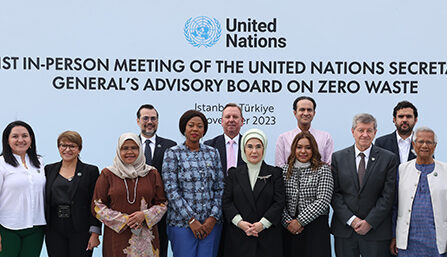On 12 July 2024, the Philippines was selected to host the Board of the Loss and Damage Fund (LDF), a financial instrument designed to help vulnerable nations recover from climate-related impacts. This development, announced during the second Board meeting in South Korea, is particularly significant for countries in the Global South, which bear the brunt of climate-induced disasters.
Mayor Abby Binay of Makati said: “This milestone is a testament to our unwavering dedication to supporting the most vulnerable nations facing severe climate-related challenges, such as extreme weather and rising sea levels.” Mayor Binay, who holds the position of ICLEI Global Executive Committee Innovative Finance Portfolio Holder, has been a leading advocate for the inclusion of cities in global climate finance dialogues. Her involvement in international forums like COP28 has highlighted the critical role that subnational governments play in addressing climate impacts, particularly in urban areas where the concentration of population and economic activities exacerbate the effects of extreme weather events.
In a statement following the announcement, Mayor Binay emphasized the need for local and regional governments to have direct access to this Fund, given that they are on the frontline of climate impacts. “Direct access to these funds will enable us to address climate change with greater efficiency and agility within our communities, thus amplifying global efforts through decisive and impactful local action. Locally led action is essential to ensure that resources reach those most affected, but without loss and damage finance addressing local needs, these solutions will not be effective,” she said, outlining that urban centres experience heightened losses due to vulnerability factors such as informal settlements and population density, especially in rapidly urbanizing nations like the Philippines.
Her call for more robust financial commitments also aligns with wider concerns about the current state of climate finance. Despite early pledges totalling $661 million, this is still far short of the estimated $4.5 to $5.4 trillion required annually for urban investment needs. Binay’s role in advocating for increased adaptation finance and direct access for cities to the LDF underscores the importance of local action in global climate efforts.
The Philippines’ role as host of the LDF board represents a significant step forward for the country as an international leader supporting resilience development against climate change and provides a platform for Southeast Asian local and regional governments to engage more closely with international climate finance mechanisms.




